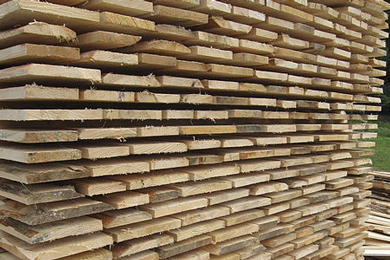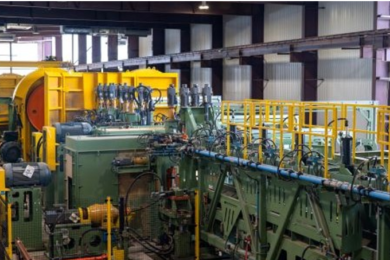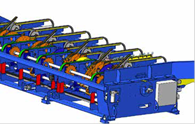A decision by Carter Holt Harvey to stop supplying wood products to major retailers could redefine how houses are built in New Zealand, an industry organisation says. Mitre 10 and Bunnings have confirmed to Stuff Carter Holt Harvey has stopped supplying them with wood products.
Mitre 10 chief of customer solutions Chris Peak said Carter Holt Harvey Woodproducts had told Mitre 10 that it could not supply it with structural timber for the foreseeable future. “This poses an industry-wide issue,” Peak said.
Mitre 10 had multiple supplier relationships and would be working to ensure it could continue to supply customers, he said. Bunnings head of merchandise New Zealand Cameron Rist said it sourced timber from a large number of suppliers and had a range of alternative options so did not expect the change would impact on its product availability.
“Carter Holt Harvey isn’t a major supplier to Bunnings and customers can be assured we will continue to work with our suppliers to meet demand for timber across our store network.”
PlaceMakers chief executive Bruce McEwen told Stuff it was advised by Carter Holt Harvey on Wednesday that it intended to make changes to how it supplied customers. BusinessDesk on Friday reported that Carter Holt Harvey had also stopped supplying ITM.
Building Industries Federation chief executive Julien Leys said it appeared as though Carter Holt Harvey had cut loose smaller retailers but was continuing to supply large customers including Fletcher Building-owned Placemakers and its own subsidiary Carters. “It certainly caught everyone by surprise,” Leys said.
A “perfect storm” had led to Carter Holt Harvey not being able to meet demand for a structural wood product called “wides” – 245mm wide timber used in a wide range of building applications, from flooring to trusses.
He said Carter Holt Harvey was the biggest manufacturer of wides in New Zealand, and it had been caught off guard by a rise in demand from multi-storey housing builds. “We’re seeing all these multi-storey units – two or three floors requiring much more timber. They just haven’t seen it coming. They haven’t been able to gear up their manufacturing capacity.”
Growth in log exports to China had also compounded the issue, he said. “The Chinese are paying top dollar for our logs.” Some timber mills in New Zealand may step in to fill the gap, but the more likely solution would be builders switching to alternative wood products, he said.
“It might mean we start having houses built a little bit differently.” Builders may need to make changes at short notice to building plans and those that were part way through a build would be looking at what the next best alternative to timber wides was, he said. “They might not necessarily go back to that wide timber.”
Source: Stuff




